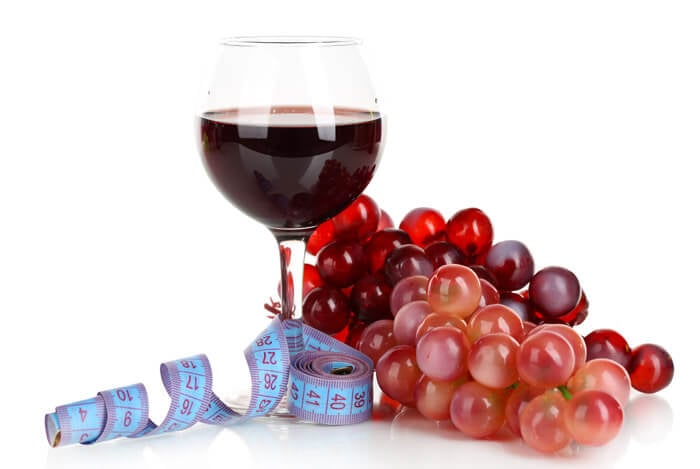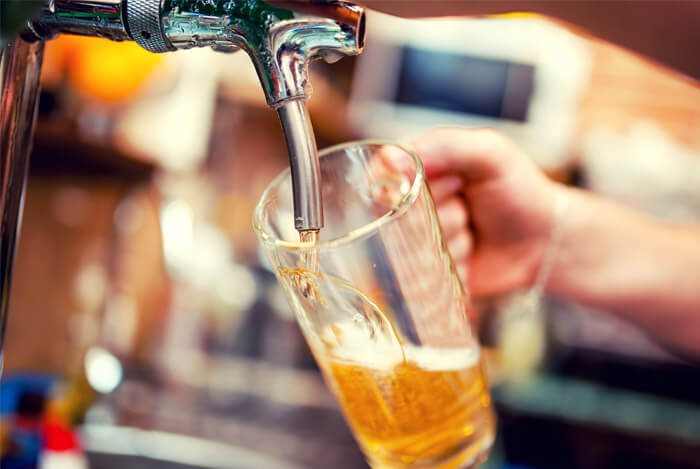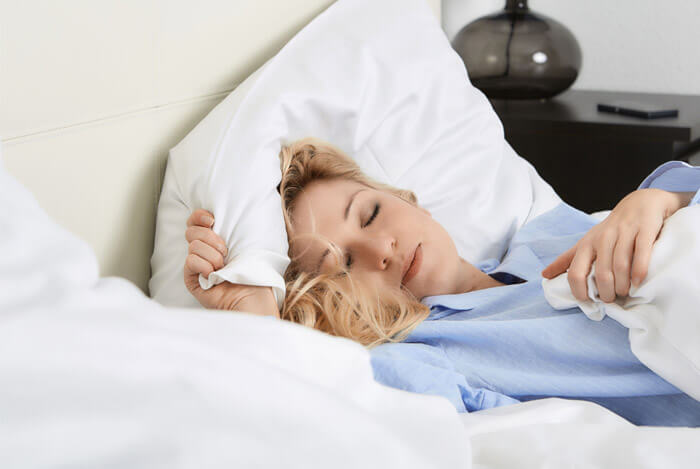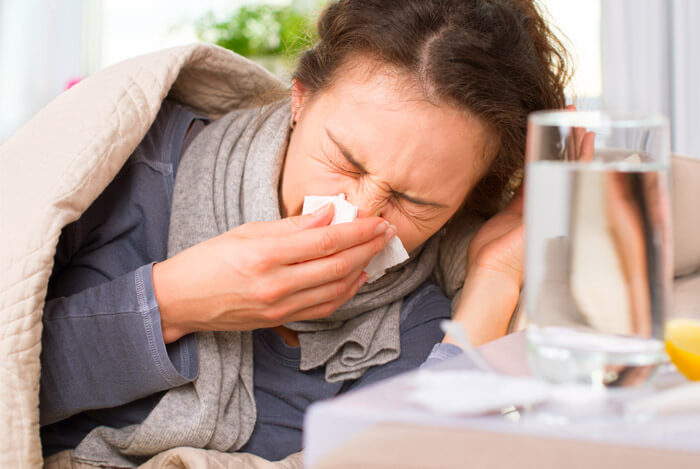One of the perks of adulthood is the ability to enjoy delightful libations any time you want.
Whether you’re the life of the party, meeting coworkers for happy hour, or pairing wine with your favorite Mediterranean-inspired dishes, everyone seems to have a little more fun with a cocktail or adult beverage in hand.
There’s plenty of information out there about the effects of excessive alcohol on our health, but it’s easy to convince yourself that your large alcohol consumption is “moderate.”
Hangovers aside, here are 9 amazing things that happen when you control your alcohol intake.
- 1. You’ll Probably Lose Weight
- 2. Reduce Risk of Heart Disease
- 3. Sleep Better
- 4. Enhance Your Brainpower
- 5. Gain and Rebuild that Muscle
- 6. Boost Your Immunity
Table of Contents
+1. You’ll Probably Lose Weight

One of the most immediate and arguably best reasons to drink less is weight loss. There are three big explanations for why you might start losing weight when you stop drinking.
First, alcohol is largely made of empty calories, which means those calories aren’t nutrient-dense like most other foods.
If you never thought about the liquid calories you’re drinking, take a look at these numbers:
- Standard can of beer: 154 calories
- Glass of white wine: 128 calories
- Martini: 295 calories
- Jack and Coke: 308 calories
If you stop drinking that martini during happy hour, you’ll save close to 300 calories each day, or 1,500 calories each work week!
See how quickly those calories add up? And that’s just from cutting one drink every weekday.
But here’s the worst part (yes, it gets worse!): when we drink alcohol, our body prioritizes digesting it before anything else.
So if you’re enjoying that fast food with your alcohol, those proteins, carbs, and fats are going to be preferentially stored as fat while the alcohol is processed.
And those foods aren’t exactly low calorie to begin with, so think about all that fat accumulating in your belly and love handles.
2. Reduce Risk of Heart Disease

Alcohol doesn’t contain cholesterol, but it can boost your cholesterol levels if it also contributes to weight gain.
During one study, mice were given the equivalent of two drinks per day while other mice were given the equivalent of a weekend binge session (seven drinks twice a week).
“Levels of LDL or ‘bad’ cholesterol plummeted 40 percent in the daily-moderate drinking mice, but rose 20 percent in the weekend-binge drinking mice”.
On top of this harmful rise, the binge-drinking mice gained “more than three times as much weight” as the moderate drinkers.
Even though studies have shown that drinking may raise HDL, or “good” cholesterol levels, excessive drinking does the opposite.
“Binge drinkers may have increased risk of developing atherosclerosis…[and] because obesity is also a risk factor for disease, binge drinking may have a strong negative impact on cardiovascular health”.
Of course, if you cut down on drinking and follow a heart-healthy eating plan, you’ll be able to keep your cholesterol levels in check and reduce your risks for atherosclerosis and heart disease.
You’ll also be better able to keep your blood sugar levels stable and keep the risk of diabetes far away.
3. Sleep Better

Most people believe that alcohol makes you fall asleep faster because it makes you drowsy. But they’re probably confusing that with passing out after a night of partying.
According to one study, when participants drank a cocktail of orange juice and vodka before bed, they showed more slow-wave sleep patterns and “delta activity”, which is the kind of deep, restorative sleep that lets the brain clear out waste, firm up memories, and allow the neurons to recharge.
That sounds positive, right?
Don’t get so excited yet.
Researchers also observed that the participants had higher alpha wave patterns and that’s not something you see during normal sleep. “Alpha activity tends to occur when the brain is awake but quietly resting, in metabolic break mode”.
By having both alpha and delta waves together, the participants experienced disrupted sleep that ruined any restoration the brain was hoping to achieve.
“Additionally, alcohol is a diuretic, which increases your need to go the bathroom and causes you to wake up earlier in the morning”.
There’s also research that shows alcohol decreases your melatonin levels in people with a history of alcohol abuse.
Melatonin is the hormone that regulates your body’s internal clock and helps promote sleepiness so you follow a restful rhythm. Mess this up by drinking every day and you may suffer from chronic insomnia and have trouble falling or staying asleep.
If you think you’re suffering from horrible hangovers, you may just be extra tired and sleep deprived.
After a night of insomnia, you’ll likely feel:
- Extreme fatigue the following day
- Irritability, anxiety, or even depression
- The onset of tension headaches
- More insomniatic
You’ll really enjoy feeling the next benefit…
4. Enhance Your Brainpower

Those fighting alpha and delta waves in the brain that cause restless sleep will definitely leave you feeling drowsy, unfocused, and tired the following day.
You may have chalked up your trouble concentrating at work to a simple hangover, but alcohol does a lot more damage to our brains than that.
“Heavy alcohol consumption—even on a single occasion—can throw the delicate balance of neurotransmitters [in your brain] off course”.
Alcohol can delay and disrupt the way neurotransmitters work so we feel groggy, agitated, and prone to forgetfulness. After long-term alcohol abuse, it’s common to experience more and more neurological effects.
“Alcohol’s most significant impact, however, is on the frontal and temporal lobes — areas of the brain critical to learning, impulse control, and other complicated human behaviors”.
New research suggests that “humans who have a few heavy drinking sessions in a row may sometimes undergo subtle brain changes which make it harder to learn from mistakes and to learn new ways of tackling problems because their brain function has been subtly impaired”.
However, staying away from alcohol for several months to a year may allow that structural brain damage to partially correct itself and help “reverse negative effects on thinking skills, including problem-solving, memory, and attention”.
So when you stop drinking, you’ll feel clearheaded and alert.
5. Gain and Rebuild that Muscle

If you think unwinding with a drink after work feels good, think about that session you put in at the gym earlier that morning instead.
Are you thinking about all those strenuous reps you agonized through?
Well, here’s something to think about.
Research from one study on rats showed that alcohol-impaired the synthesis of protein and disrupted the building of new muscle. When the rats consumed more alcohol, their lean body mass and muscle weight both decreased.
Scientists from another study found out that “alcohol decreased the production of human growth hormone, a key part of the muscle repair and growth process, by up to 70%”.
Even the best whey protein shakes can’t undo those issues.
Drop the excessive drinking and start building muscle again — your muscles will thank you and you’ll be feeling hotter than ever.
Speaking of which…
6. Boost Your Immunity

According to one study, your immune system becomes weakened due to binge drinking “within just 20 minutes of ingesting alcohol”. Makes you think twice about binge drinking in that questionable dive bar now, huh?
I know it’s hard to resist drinking spiced eggnog and warm hot toddies during the holidays, but that’s prime cold and flu season.
Listen, I don’t want to be a Debbie Downer and tell you that you’re not allowed to drink alcohol and have fun anymore. But the truth is that the “fun” of binge drinking alcohol may not be enough to justify all the health benefits you’ll enjoy when you cut back to more reasonable levels.
From weight loss, muscle building, to improved sleep and brain function, I can’t imagine many parties or glasses of wine that offer anything close.
If you roll with a crowd that always seems to be popping bottles around you, share this article with them and make a pact to avoid booze together. You’ll be one sexy, healthy crew!
What’s your take on the benefits of cutting back on alcohol? Have anything else you’d like to share? Let me know in the comments below!
Scientific References +
- Kirk J. Brower, M. D. (n.d.). Alcohol’s Effects on Sleep in Alcoholics. Retrieved February 22, 2021, from https://pubs.niaaa.nih.gov/publications/arh25-2/110-125.htm
- University of Rochester Medical Center. (n.d.). Study Links Drinking Pattern to Alcohol’s Effect on Heart Health | URMC Newsroom. Retrieved February 22, 2021, from https://www.urmc.rochester.edu/news/story/study-links-drinking-pattern-to-alcohols-effect-on-heart-health










